FREEMUSIC07
Main » 2010 » July » 05
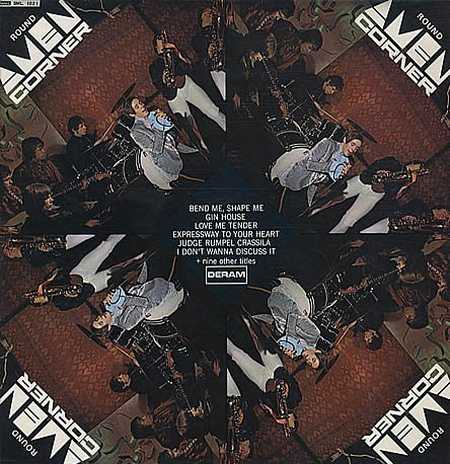
Amen Corner was a successful British rock group, formed in late 1966 in Cardiff, Wales. The band was named after The Amen Corner, a weekly disc spin at the Victoria Ballroom (later to become The Scene Club) in Cardiff, Wales, where every Sunday night Dr. Rock would play the best soul music from the United States. Initially they specialised in a blues and jazz-orientated style, but were steered by their record labels into more commercial pastures. Their first singles and album appeared on Decca's subsidiary label Deram, but they left at the end of 1968 to join Immediate,where they were instantly rewarded with a No. 1, "(If Paradise Is) Half as Nice" in early 1969, followed by another Top 5 entry with the Roy Wood composition, "Hello Susie". After recording a final studio album, Farewell to the Real Magnificent Seven, with a cover version of The Beatles' "Get Back" released as their swansong, they disbanded at the end of 1969.01 - Bend Me, Shape Me02 - Judge Rumpel Crassila03 - Love Me Tender04 - Our Love (Is In The Pocket)05 - Something You Got06 - I Am An Angel (But I Can't Fly07 - Expressway To Your Heart08 - Good Time09 - Let The Good Times Roll And Feel So Good10 - Can't Get Used To Losing You11 - Lost And Found12 - Gin House Blues13 - I Don't Wanna Discuss It And AmenLINK |
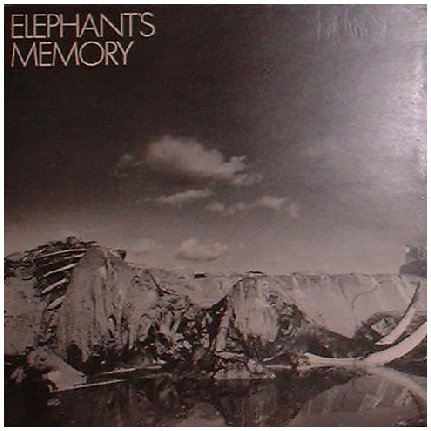 Elephant's Memory was a New York band, most notable for backing John Lennon and Yoko Ono during 1972 (appearing as the Plastic Ono Elephant's Memory Band) on a pair of albums, and a handful of TV and live appearances.Two of their songs, "Jungle Gym at the Zoo" and "Old Man Willow", appeared earlier in the soundtrack to the film Midnight Cowboy. Elephant's Memory received a gold disc for their contribution to the soundtrack. The Elephant's Memory was formed between 1967 and 1968 by Stan Bronstein (sax/clarinet/vocals) and Rick Frank (drums). In 1968 they briefly added Carly Simon as a vocalist. By 1969 the line-up had expanded to include John Ward (bass), Chester Ayers (guitar), Myron Yules (bass/trombone), Richard Sussman (keyboards), Michal Shapiro (vocals), Guy Peritore (guitar/vocals), and David Cohen (guitar/keyboards/vocals). Further additions in 1970 saw Chris Robison (guitar) and Davey 'Crabsticks' Trotter (mellotron) join the band. This is the second selftitled album from 1972, produced by John Lennon & Yoko Ono.01 - Liberation Special02 - Baddest Of The Mean03 - Cryin Blacksheep Blues04 - Chuckn Bo05 - Gypsy Wolf06 - Madness07 - Life08 - Wind Ridge09 - Power Boogie10 - Local Plastic Ono BandLINK |
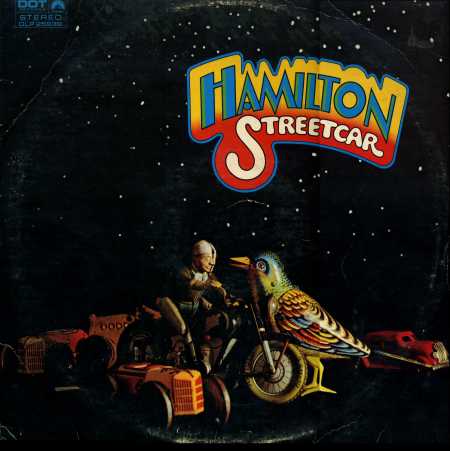 The Los Angeles-based Hamilton Streetcar were apparently a studio project built around the talents of ex-Appletree Theater mastermind/vocalist John Boylan, singer/guitarist Buzz Clifford (who'd enjoyed an early '60s hit with "Baby Sittin' Boogie") and Ralph Plummer. The trio somehow attracted the attention of the eccentric Lee Hazlewood who promptly signed them to his newly established LHI label. Debuting with 1968's "Invisible People" b/w "Flash", the group managed one follow-up single "Confusion" b/w "Your Own Comedown", before switching to Dot Records. The group was originally named on behalf of former member John Burge, aka Ian Hamilton.01 - Overture02 - Streetcar03 - Brother Speed04 - I See I Am05 - Where Do I Go06 - Now I Taste The Tears07 - Welcome Into Your World08 - Entre Acte09 - Wouldnt It Be Nice [To Have Wi10 - Silver Wings11 - Honey And Wine12 - Pleasant Street13 - Wasnt It YouLINK |
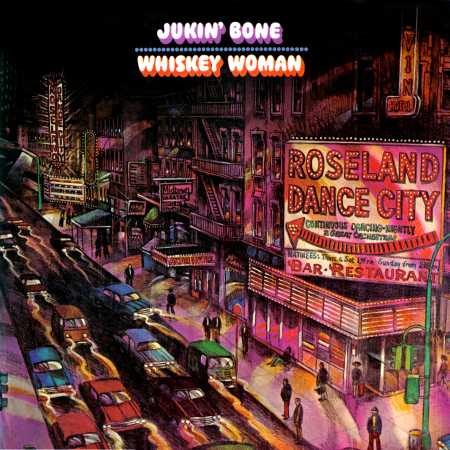 Jukin' Bone recorded two albums, "Whiskey Woman" and "Way Down East" that were hailed by Creem magazine as seminal classics of 70's hard rock. While signed to RCA, the band toured with ZZ Top, Freddie King, The Allman Brothers, The Kinks, John Mayall, and Three Dog Night, among others. They disbanded in 1973. Joe Whiting (vocals), Mark Doyle (lead guitar, piano), George Egosarian (rhythm guitar, slide guitar), John DeMaso (bass), Tom Glaister (drums, percussion)01 - Jungle Fever02 - Candy Man03 - Spirit In The Dark04 - Can't Judge What You Miss05 - Whiskey Woman06 - Going Down07 - The Hunter08 - Got The Need09 - Let LooseLINK |
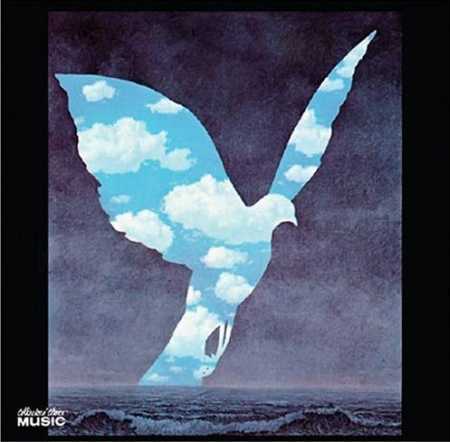 The Rascals (initially known as The Young Rascals) were an American blue-eyed soul group initially active during the years 1965–72. The band released numerous top ten singles in North America during the mid- and late-1960s, including the U.S. #1 hits "Good Lovin'" (1966), "Groovin'" (1967), and "People Got to Be Free" (1968). The band was inducted into the Rock and Roll Hall of Fame in 1997. See was released in December 1969. The album continued a trend towards album-oriented material authored and sung by Felix Cavaliere, begun with the band's Freedom Suite album earlier in the year.01 See02 I'd Like To Take You Home03 Remember Me04 I'm Blue05 Stop And Think06 Temptation's Bout To Get Me07 Nubia08 Carry Me Back09 Away Away10 Real Thing11 Death's Reply12 Hold OnLINK |
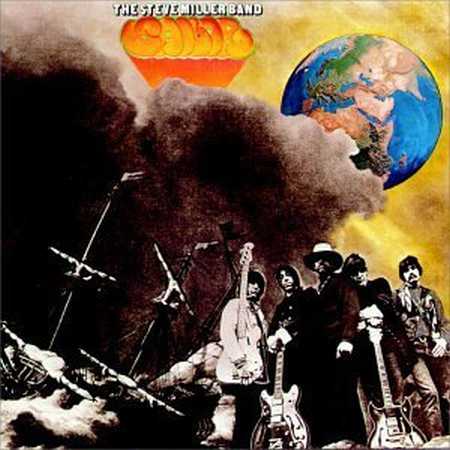 In 1965, Steve Miller and keyboardist Barry Goldberg founded the Goldberg-Miller Blues Band along with bassist Shawn Yoder, rhythm guitarist Craymore Stevens, and drummer Lance Haas after moving to Chicago to play the blues. The band was contracted to Epic Records after playing many Chicago clubs. They also appeared on Hullabaloo with the Four Tops and the Supremes, and gigged at a Manhattan club. With Miller, the band's only release was the ten-track album Blowing My Mind in 1966. Miller left the group to go to San Francisco where the psychedelic scene was flourishing. He then formed the Steve Miller Blues Band which, when they contracted with Capitol Records in 1967, they shortened their name to the Steve Miller Band. The band, consisting of Miller, guitarist James Cooke, bassist Lonnie Turner, and drummer Tim Davis (who replaced the departing Lance Haas on drums), backed Chuck Berry at a gig at the Fillmore West that was released as a live album. Sailor is the second album by The Steve Miller Band, released in 1968. 01 - Song For Our Ancestors02 - Dear Mary03 - My Friend04 - Living In The U.S.A.05 - Quicksilver Girl06 - Lucky Man07 - Gangster Of Love08 - You're So Fine09 - Overdrive10 - Dime-A-Dance RomanceLINK |
|
|
Statistics
Total online: 1 Guests: 1 Users: 0
|








